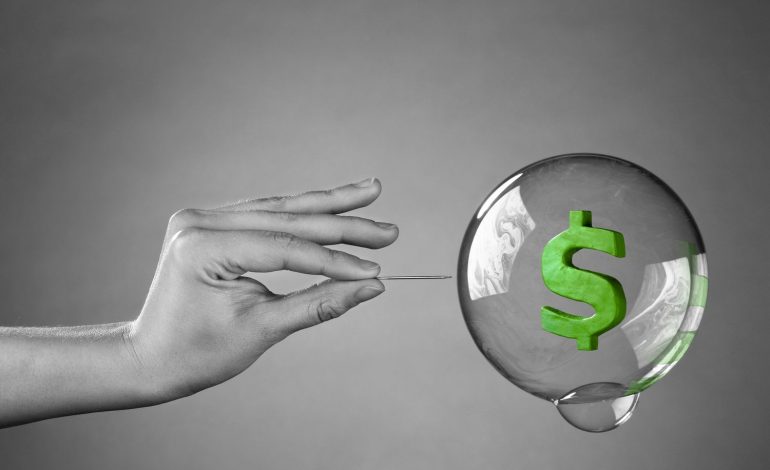The terms middle class and upper class are frequently used in the UK, as you are probably aware, but what do they actually imply and how do they connect to income? What factors affect the distribution of income in society, and how is it done?
Using a simplification of the situation will make understanding income distribution simpler. Consider a group of ten people who each make the same amount of money. In that situation, there is an equitable distribution of revenue. On the other side, we have unequal income distribution if just two people earn a living and the other eight do not.
Additionally, the goal of the economics branch of research known as income distribution is to examine how income is distributed between generations, genders, and geographical regions. It investigates, for instance, the disparity in income between residents of Cambridge and those of central London, between men and women, or between millennials and members of Generation X.
The distribution of income is also crucial for determining the differences between populations in nations with high and low GDPs. In order to calculate the poverty rate for each nation at any GDP level, income distribution is essential. Lower rates of poverty are linked to economies with more evenly distributed income.
Governments should pay particular attention to this issue because market failures are one of the key reasons for unequal income distribution.
There are many factors influencing the distribution of income. Let’s study the main ones.
Factors of production
The way income is distributed amongst the factors of production, namely, land, labor, capital, and entrepreneurs, plays a vital role in how much income an individual makes. Think about the owners of large estates in central London near Downing Street. The amount of revenue they receive from rent does not compare to the rent one would receive from renting out an apartment in Barking and Dagenham.
Additionally, entrepreneurs owning shares in a large company make significant income from their dividend payments. On the other hand, labor has the smallest share of the income distribution. Someone working in the factories of Tesla receives less income than the people who own Tesla shares.
Difference between earned and unearned income
Earned income is the income you get when you work an 8-hour shift and receive a salary at the end of the month. On the other hand, unearned income is the income you get when you have invested in a company and received dividend payments for that.
Unearned income usually comes from sources other than employment. The difference between earned and unearned income plays an important role in income distribution. When the difference between these two is wide, you generally would have unequal income distribution in the economy. The reason for that is that most people in a society have earned income as their primary source of income.
Wage and salary difference
The difference between salaries in the labor market plays an essential role in income distribution. When you have a wide difference between those at the top and the bottom of a company, you have a more uneven distribution of income.
The two main reasons that cause the wage and salary difference are labor productivity and labor supply.
Labor productivity plays an important role when it comes to wage differences. Think about a company’s CEO and someone who just joined the company in a junior position. The company’s CEO has much higher productivity due to their experience, training, and education. In contrast, a junior position has lower productivity as they are still learning to do the job. This translates into higher demand for someone with higher labor productivity, which increases their wages.
Read Also: Events Management in Tourism: Attracting More Tourists
Labor supply is another factor that influences wage differences and, therefore, income distribution. In industries with a high supply of labor, such as cleaners, the salary paid will be lower. In contrast, sectors with relatively low labor supply, such as in the autopilot labor market have higher earnings.
Globalization and migration
Globalization and the inflow of workers from relatively low-income countries have also played an important role in influencing income distribution. This is especially true for developed countries, particularly the UK. The influx of workers has decreased salaries in some sectors. That’s because the labor supply is high, which then translates into lower wages.
Additionally, globalization has also played a role in influencing income distribution. Many of the jobs that would have otherwise been in the UK have been outsourced overseas. That’s because in less developed countries labour is cheaper. This means lower demand for UK workers, which in turn has decreased salaries and influenced the distribution of income.
How Can Income be Distributed Equitably?
Income in many countries, including the UK, tends to be distributed unequally. A more equitable distribution of income would mean that income is distributed in a fair way. There are many micro and macroeconomic policies a government can implement to tackle income inequality and distribute it more equitably.
Some of these policies include:
- Progressive taxation. Progressive taxes reduce the tax burden on those with lower incomes and allow individuals to have more disposable income. Taxing the rich more allows the government to redistribute income in a more equitable manner, thus reducing income inequality.
- Investment in the welfare system. Neglecting the welfare system often results in higher income inequality and poverty rates. When governments invest well in their country’s welfare systems, they significantly help the poorest in society.
- Investment in education and healthcare. Investing in these two services allows for a more skilled and healthier workforce that earns higher wages. This reduces the gap between rich and poor.
There are many benefits to an equitable distribution of income. We can see some of these benefits in the Nordic countries too. Some benefits are:
- Reduced social problems. When incomes are distributed in an equitable way, there is less social friction. Thus governments can enjoy a level of social peace and stability.
- Standard of living. The equitable distribution of income allows for all citizens to enjoy high standards of living.
- Economic growth. Poorer individuals have a higher marginal propensity to consume (MPC) because they have more essential goods and services that they need to buy compared to the rich. A more equal distribution of income allows these individuals to consume more and thus this spurs economic growth.
The equitable distribution of income is a good thing. But it can have some economic drawbacks. Some of these are:
- Fewer incentives. Inequality provides an incentive for individuals to take risks and start a business. It also incentivizes people to work and earn a higher income. If income is distributed in an equal way, it could lower some of these incentives.
- Loss of the trickle-down effect. This theory in economics is used to describe the belief that higher-income earners benefit everyone in society. If income was distributed equally, then the wider society wouldn’t experience the benefits that have been ‘trickled down’.
Here is an example:
A millionaire sets up a business that further increases their income and wealth. But this business creates jobs and incomes for many other people. This does widen the gap between rich and poor, but one could argue that the poor are better off than without the millionaire.
The trickle-down theory
We can explain how some economists believe the trickle-down effect works in three stages:
- The effect starts off with a wealthy individual gaining more income. This could come in the form of higher incomes or a high return on investment.
- This individual then is assumed to have two options: invest, which creates more jobs and opportunities for others in the economy, or spend, which increases the level of consumption and demand in the economy.
- If the individual chooses to invest, this allows for the poorer in society to benefit from job creation and opportunities that allow them to receive higher incomes. When wealthy individual and their workers pay taxes, the tax revenue the government receives can be further redistributed in the economy to help the poorest and allow for a fairer society. If the individual chooses to spend, the increase in spending can result in a positive multiplier effect which will benefit businesses and the national economy.
The trickle-down effect does have its fair share of criticism because despite the theory it doesn’t seem to work in real life. Some argue that the rich have a high marginal propensity to save (MPS). Their savings are a withdrawal from the circular flow of income and thus don’t benefit the economy.
The rich are also more likely to avoid taxes, so the government will receive less in tax revenue to redistribute to poor individuals. Essentially, the rich get richer and the poor get poorer.
Equitable Distribution of Income
Equitable distribution of income ensures the distributing welfare ensures fairness and allows members of the economy to have the same opportunity to accumulate wealth. The Government redistributes tax revenue to ensure equitable distribution of wealth. Low-income earners should receive an adequate amount of support that assists in cost of living pressures but does not compromise on reducing the incentive to work and accumulate wealth.
The equitable distribution of income allows for social harmony and cohesion. If wealth is too unevenly distributed, then majority members of an economy will be disadvantaged at the expense of very few who are well off. The equitable distribution of income also allows low-income earners the ability to access opportunities to grow wealth. For example, the Australian Government has a New Enterprise Incentive Scheme allowing the unemployed to access capital to start their own businesses.
How can the Government achieve a more Equitable Distribution of Income?
- Progressive tax system – those who earn more income pay a larger amount of tax
- Educational grants, subsidies, and low-interest loans
- Welfare and income support for low-income earners
- Compensation for low-income earners from GST revenue
- Wealth taxes
Equitable distribution of income means that income is distributed in a way that ensures fairness and allows everyone to have the same opportunities. The equitable distribution of income doesn’t mean that income is distributed equally; it just means that income is distributed in a fair way.
Some solutions to achieve equitable distribution are:
- Progressive tax systems.
- Investing in the welfare systems.
- Access to education and healthcare.
The equitable distribution of income is important because it allows for a fairer economic system. This leads to a more cohesive society that can benefit the larger economy.
Conclusion
- Equitable distribution of income means that income is distributed in a way that ensures fairness and allows everyone to have the same opportunities.
- Income tends to congregate in a particular part of a country or within certain groups of people.
- Some reasons why income is distributed unequally are unemployment, age, underemployment, and lack of skills.
- Governments can distribute income more equally by making taxes more progressive, investing in welfare systems, and investing in education and healthcare.
- In the Nordic countries, income is distributed more equitably than in other Western countries.
- The benefits of the equitable distribution of income are: reduced social problems, higher standards of living, and economic growth.
- The drawbacks to the equitable distribution of income are: fewer incentives and the loss of the trickle-down effect.


